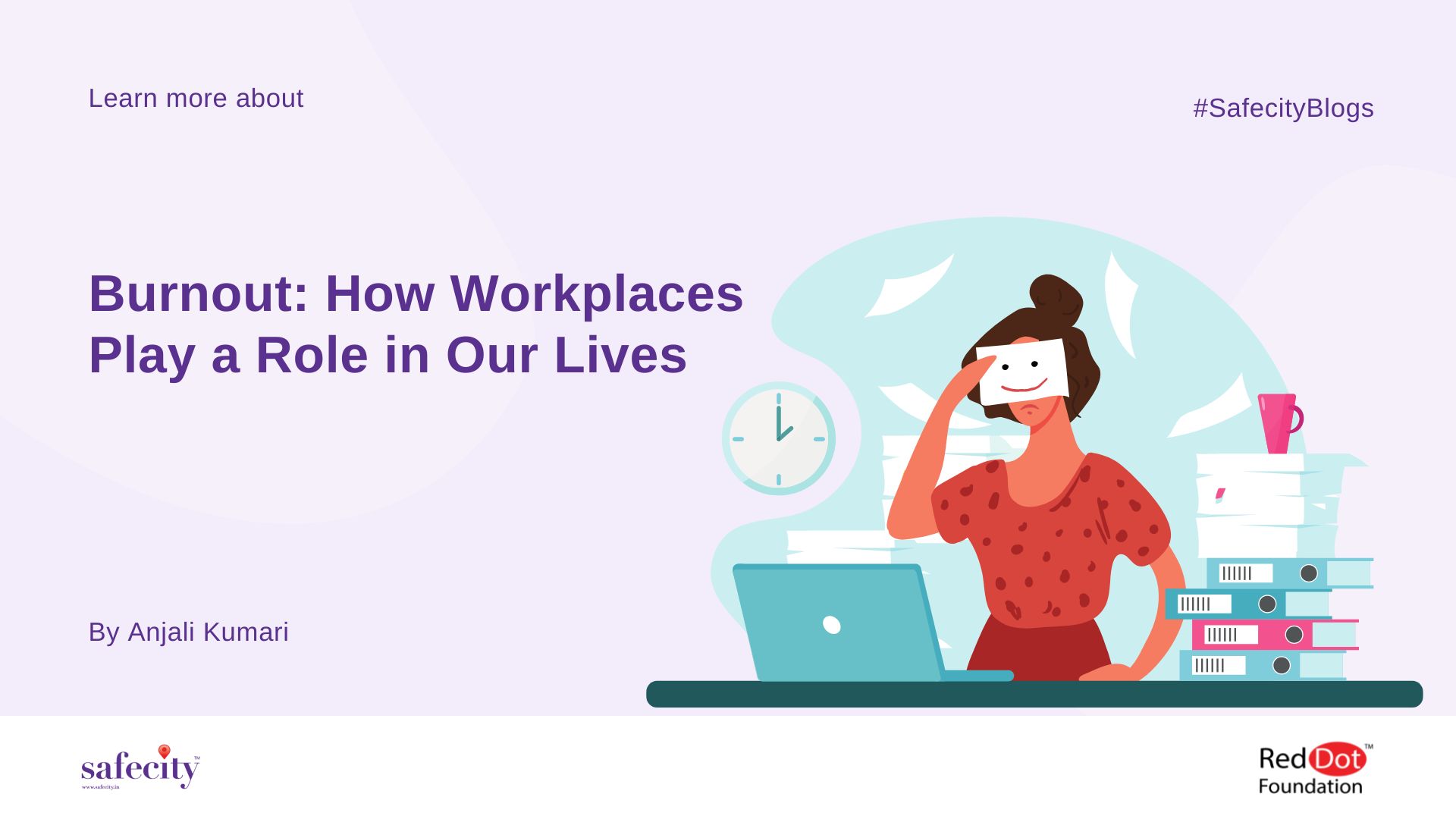Burnout: How Workplaces Play a Role in Our Lives

By Anjali Kumari
Everyone is discussing burnout, from celebrities to working-class people. Many assumed that this new technological era would reduce our workload, but it appears like we are heading towards a new pandemic – burnout. It began with the American dream that “regardless of where anyone was born or what class they were born into, they might achieve their version of success in a society where upward mobility is possible for everyone”. It quickly gave rise to the “hustle culture” described as the distilled capitalism for the modern middle class. It has also affected how social media projected this image of success. This concept gained popularity worldwide, and many billionaires began boasting about their work ethic (a hundred hours per week) using egregious motivational quotes and slogans.
During the COVID-19 pandemic, most people faced burnout because of the work-from-home policy. Working women were significantly affected during this crisis; they simultaneously took care of the household chores and professional work. Messed-up schedules and long working hours resulted in collateral damage to their mental health. A study conducted by Deloitte found that 53 percent of the participants’ stress levels were higher than they had been a year ago. It became difficult for them to juggle all this with optimistic reflection, pushing them to feel guilty about themselves. As there were incessant blurred lines between work and personal life, most considered opting out of their workplaces.
According to Harvard Business Review, The Great Resignation of 2021 resulted from the five R’s: retirement, relocation, reconsideration, reshuffling, and reluctance. People from the working class have chosen to retire early and divert their energy and time to other endeavours. Many people have decided to reevaluate their work-life balance thoughtfully. Instead of burning out at a stagnant job with a low minimum salary, skilled workers are searching for better options. They are reluctant to switch to companies or workplaces where they cannot control their lives. We have normalized this culture that if you want success in your professional life, you will have to give up your personal narrative, just as in “The Devil Wears Prada” written by Lauren Weisberger. In it, the character Nigel casually brushes off Andrea when she talks about how her work affects her personal life.
The stress level among the working professionals in a range of professions, such as doctors, nurses, teaching professionals, social workers etc., were so high that many of them were unaware of their burnout. Forbes wrote an article on the diagnostic manual ICD 11 by WHO that incorporated burnout particularly as a workplace phenomenon and defined it as “a syndrome that has been considered to originate from chronic workplace stress and has not been effectively handled”. According to the manual, occupational burnout is not about being tired; it contains three aspects to recognize the symptoms of burnout: (a) running out of energy, (b) increased mental distance from one’s job and (c) decreased performance review. People sometimes like to blame themselves instead of digging out the leading cause of their exhaustion. But this is what our modernized society has always taught us.
It is the responsibility of workplaces to take care of the workload they have distributed to their employees. They must frequently assess the mental well-being of their staff. Regular feedback is one of the keys to preventing burnout on the job. The team will be stronger if there are weekly or monthly meetings to discuss and hear from the personnel. The development of emotional intelligence is also something that many philosophers and thinkers are urging employers to focus on; this is how employees can increase their value.
It is widespread for us to walk on societal expectations because human beings are expected to remain in an over-frenzied state. Hustle culture has disillusioned us since life is not all about the next hustle or the rush towards achieving professional success. It is now imperative we arrive at a logical solution to this burnout. Numerous businesses worldwide now appreciate the worth of employees’ time and effort due to The Great Resignation. Like America, we can start The Great Recognition movement too. The aim is to create a culture of appreciation, belonging, and recognition. The pandemic did not just bring dejection to our life; it has made us realize the importance of being alive and living a fulfilling life.
References:
- Burnout Is About Your Workplace, Not Your People
- American Dream Definition: Can You Achieve It?
- What Does It Mean to Have “Burnout”?
- Burnout Research: Emergence and Scientific Investigation of a Contested Diagnosis.
- Your work is not your god: welcome to the age of the burnout epidemic | Life and style | The Guardian
- How to Identify and Avoid Project Burnout at Work
- Woe Is Me! “I Used To Be Ambitious, but Now I’m Tired of Hustling. Can I Stop?” | The Swaddle
- Working women face ‘perfect storm,’ study finds (nbcnews.com)
- The Great Resignation Didn’t Start with the Pandemic (hbr.org)
